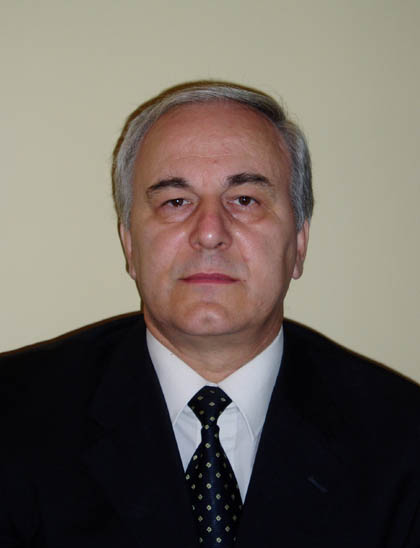Studying at the University of Verona
Here you can find information on the organisational aspects of the Programme, lecture timetables, learning activities and useful contact details for your time at the University, from enrolment to graduation.
Academic calendar
The academic calendar shows the deadlines and scheduled events that are relevant to students, teaching and technical-administrative staff of the University. Public holidays and University closures are also indicated. The academic year normally begins on 1 October each year and ends on 30 September of the following year.
Course calendar
The Academic Calendar sets out the degree programme lecture and exam timetables, as well as the relevant university closure dates..
| Period | From | To |
|---|---|---|
| I semestre - sede TN | Sep 16, 2019 | Dec 20, 2019 |
| Sem 1A | Sep 23, 2019 | Oct 31, 2019 |
| Sem 1B | Nov 11, 2019 | Jan 11, 2020 |
| Sem 2A | Feb 17, 2020 | Mar 28, 2020 |
| II semestre - sede TN | Feb 17, 2020 | May 29, 2020 |
| Sem 2B | Apr 6, 2020 | May 30, 2020 |
| Session | From | To |
|---|---|---|
| Sessione d'esame invernale | Jan 13, 2020 | Feb 15, 2020 |
| Sessione d'esame estiva (gli esami sono sospesi durante la sessione di laurea) | Jun 3, 2020 | Jul 25, 2020 |
| Sessione d'esame autunnale | Aug 24, 2020 | Sep 19, 2020 |
| Session | From | To |
|---|---|---|
| Sessione di laurea estiva | Jul 6, 2020 | Jul 11, 2020 |
| Sessione di laurea autunnale 19-20 | Nov 2, 2020 | Nov 7, 2020 |
| Period | From | To |
|---|---|---|
| Festa di Ognissanti | Nov 1, 2019 | Nov 1, 2019 |
| Sospensione delle lezioni | Nov 2, 2019 | Nov 2, 2019 |
| Festa dell'Immacolata | Dec 8, 2019 | Dec 8, 2019 |
| Vacanze di Natale | Dec 23, 2019 | Jan 6, 2020 |
| Vacanze di Pasqua | Apr 10, 2020 | Apr 14, 2020 |
| Festa della Liberazione | Apr 25, 2020 | Apr 25, 2020 |
| Festa del Lavoro | May 1, 2020 | May 1, 2020 |
| Sospensione delle lezioni | May 2, 2020 | May 2, 2020 |
| Festa del Santo Patrono | May 21, 2020 | May 21, 2020 |
| Sospensione delle lezioni | May 22, 2020 | May 23, 2020 |
| Festa della Repubblica | Jun 2, 2020 | Jun 2, 2020 |
| Vacanze estive | Aug 10, 2020 | Aug 15, 2020 |
Exam calendar
Exam dates and rounds are managed by the relevant Culture and Civilisation Teaching and Student Services Unit.
To view all the exam sessions available, please use the Exam dashboard on ESSE3.
If you forgot your login details or have problems logging in, please contact the relevant IT HelpDesk, or check the login details recovery web page.
Should you have any doubts or questions, please check the Enrollment FAQs
Academic staff

Bassetti Massimiliano
 massimiliano.bassetti@univr.it
massimiliano.bassetti@univr.it
 045802 8376
045802 8376
 giovanni.ciappelli@univr.it
giovanni.ciappelli@univr.it
 gianmaria.varanini@univr.it
gianmaria.varanini@univr.it
Study Plan
The Study Plan includes all modules, teaching and learning activities that each student will need to undertake during their time at the University.
Please select your Study Plan based on your enrollment year.
1° Year
| Modules | Credits | TAF | SSD |
|---|
Medieval History, History of Christianity and Churches
Early Modern History I - LM (Historical Anthropology)
Contemporary History I - LM
History of Political Institutions II
History of Political Thought
History of Science and Technology - LM
History of Medieval Art I
Medieval Latin Literature II
Digital tools for historical research
2° Year activated in the A.Y. 2020/2021
| Modules | Credits | TAF | SSD |
|---|
| Modules | Credits | TAF | SSD |
|---|
Medieval History, History of Christianity and Churches
Early Modern History I - LM (Historical Anthropology)
Contemporary History I - LM
History of Political Institutions II
History of Political Thought
History of Science and Technology - LM
History of Medieval Art I
Medieval Latin Literature II
Digital tools for historical research
| Modules | Credits | TAF | SSD |
|---|
Legend | Type of training activity (TTA)
TAF (Type of Educational Activity) All courses and activities are classified into different types of educational activities, indicated by a letter.
Political and Economical Geography (2019/2020)
Teaching code
4S01059
Teacher
Coordinator
Credits
6
Language
Italian
Scientific Disciplinary Sector (SSD)
M-GGR/02 - ECONOMIC AND POLITICAL GEOGRAPHY
Period
Sem 1A, Sem 1B
Learning outcomes
The course focuses on the logics and processes through which the terrestrial spaces have been organized and the spatial relations evolve among the political, economic and social actors.
Program
Topics
The course is structured in two parts, one dedicated to politics and one to the economy.
Space and its meanings
Space represented and space involved
The State and its spatial characteristics: shape, size, position
Boundaries and frontiers
Spatial models
Peopling and population
Economy and its meanings
Energy resources: issues and problems
Interlinking and relationship between politics and economics
Geopolitics
Teaching methods
Teaching methods are distinct from attending and non-attending students.
With regard to attending students, teaching methods consist in frontal lessons in Italian language devoted to the transmission of basic notions, key categories and key application tools. Additionally, exercises in the History and Cartography Didactics Lab provide useful support in understanding case studies related to the present day with maps and documentary material.
Throughout the academic year the teacher is available for an individual meetings, agreed via web or telephone. Attending students will receive the complete calendar of teaching activities with the dates, classrooms and topics covered in the lessons, and how to prepare and take the exam.
With regard to non-attending students, the teaching methods consist of a teacher support to facilitate the textbook study. Any further information will be provided to the student when the ad hoc program is agreed upon.
The content of the textbooks, as well as the lessons and exercises held in the classroom, is adhering to the program
Suggested material
Attending students:
S. Conti, G. Dematteis, C. Lanza, F. Nano, Geografia dell’economia mondiale, Torino, Utet, 2010.
G. Lizza, Geopolitica delle prossime sfide, Torino, Utet, 2011
Non-attendanting students:
Program to be agreed with the teacher
| Author | Title | Publishing house | Year | ISBN | Notes |
|---|---|---|---|---|---|
| Conti, Dematteis, Lanza, Nano | Geografia dell’economia mondiale | Utet | 2010 | ||
| Lizza | Geopolitica delle prossime sfide | Utet | 2011 |
Examination Methods
The assessment of learning outcomes includes:
- for attending students: a written preliminary exam (optional and only at the end of the course) of the acquired knowledge and a supplementary oral examination;
- for non-attending students: an oral exam
EXAMINATION
Objectives of the assessment tests
The written test is intended to ascertain the knowledge of the classroom topics and the ability to apply logic to the various proposed issues.
The supplementary oral test consists of an interview aimed at developing the issues emerging in the context of written pre-assessment.
The full oral test consists of an interview aimed at verifying:
- the depth and breadth of the acquired knowledge;
- the property of language;
- the ability to connect systematically knowledge;
- analytical and argumentative ability.
Content and method of carrying out the assessment tests
The written test potentially covers all the topics in the program given at the opening of the course to the student. The written exam is divided into four questions related to the topics discussed in the course. Each question is associated with a score expressed in 30s. The written test concludes with a vote proposal that the student can integrate with the supplementary oral exam.
The full oral test is about the entire program. The final evaluation is expressed in 30s.
ERASMUS students are requested to contact the teacher at the beginning of the course to agree on the teaching and examination methods together.
Type D and Type F activities
| years | Modules | TAF | Teacher |
|---|---|---|---|
| 1° 2° | Global History: the Modern Age | D |
Serena Luzzi
(Coordinator)
|
Career prospects
Module/Programme news
News for students
There you will find information, resources and services useful during your time at the University (Student’s exam record, your study plan on ESSE3, Distance Learning courses, university email account, office forms, administrative procedures, etc.). You can log into MyUnivr with your GIA login details: only in this way will you be able to receive notification of all the notices from your teachers and your secretariat via email and soon also via the Univr app.
Linguistic training CLA
Double degree
The University of Verona, through a network of agreements with foreign universities, offers international courses that enable students to gain a Double/Joint degree at the time of graduation. Indeed, students enrolled in a Double/Joint degree programme will be able to obtain both the degree of the University of Verona and the degree issued by the Partner University abroad - where they are expected to attend part of the programme -, in the time it normally takes to gain a common Master’s degree. The institutions concerned shall ensure that both degrees are recognised in the two countries.
Places on these programmes are limited, and admissions and any applicable grants are subject to applicants being selected in a specific Call for applications.
The latest Call for applications for Double/Joint Degrees at the University of Verona is available now!
Graduation
List of theses and work experience proposals
| theses proposals | Research area |
|---|---|
| Ambiti di tesi | Art & Architecture - Art & Architecture |
Student mentoring
Student login and resources
Manifesto degli studi
Manifesto degli studi del CdLM interateneo in Scienze storiche
Documents
| Title | Info File |
|---|---|
|
|
pdf, it, 466 KB, 26/02/24 |
|
|
pdf, it, 456 KB, 26/02/24 |






















